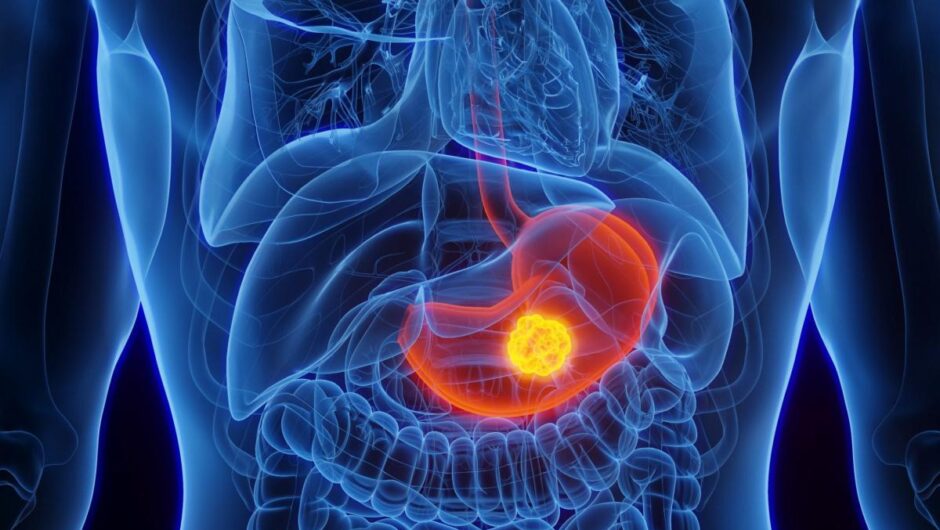[ad_1]
A cancer patient who caught coronavirus saw his tumour disappear, a medical report has revealed.
The 61-year-old man, who has not been named but is from Cornwall, was having a check up last summer after being diagnosed with Hodgkin lymphoma — a type of blood cancer that affects about 2,100 people a year in the UK.
Just a few days after receiving his diagnosis, the patient was admitted to hospital with severe Covid-19.
After he recovered, a follow-up for his cancer scan found that tumours which had littered his torso just a few weeks before had almost gone.
Spontaneous remission of this type of cancer does occur but it’s incredibly rare with only a couple of dozen cases, from all over the world, have ever been recorded.
His case has been highlighted in a paper in the British Journal of Haematology, outlining how after testing positive for the virus, he developed pneumonia, inflammation of the lungs caused by the viral infection.
He was put on oxygen to help him breathe while his lungs recuperated, and kept in hospital for 11 days, before being discharged home, fully recovered.
It was a few weeks later that a CT scan to check his cancer revealed it had all but gone.
The conclusion his doctors reached was that the Covid-19 had destroyed his cancer by firing up his immune system enough not just to see off the virus but to attack and destroy malignant cells, too.
Dr Sarah Challoner, one of the doctors treating the cancer at the Royal Cornwall Hospital in Truro, said in the published report: “We think Covid-19 triggered an anti-tumour immune response.”
She said they believed that infection-fighting cells, called T-cells, released on a large scale by the immune system to try to see off the coronavirus also attacked cancer cells which it recognised as “foreign”.
Hodgkin lymphoma is a type of blood cancer that develops when white blood cells grow out of control and spread to the lymph nodes.
It usually responds well to chemotherapy, the main treatment, and almost 90% of patients are still alive five years after diagnosis. But this patient had yet to start treatment and the only change to his circumstances was to have Covid-19.
But Martin Ledwick, Cancer Research UK’s head cancer information nurse, warned: “At this stage it’s too early to draw any conclusions from these cases – it’s quite possibly a coincidence.
“Anyone undergoing cancer treatment should continue to follow the advice of their doctors, as well as protecting themselves from catching COVID-19. And we encourage all who can to take up the vaccine.”
And Paul Hunter, a professor of medicine at the University of East Anglia, said: “The message for anyone with cancer is that, deliberately exposing yourself to Covid-19 in the hope it will heal you is much more likely to lead to your untimely demise than to a cure.
“I don’t think we fully understand the mechanisms, but some immune response is most likely to be the reason.
“Tumours often evade the immune system and, in this case, Covid infection seems to have kick-started the immune system very effectively. Given how common cancer is, and how common Covid-19 is, it may not be surprising that we see more reports of spontaneous remission associated with a coronavirus.
“But proving cause and effect will be very difficult unless we see quite a few such remissions.”
Last year a report in Italian medical journal Acta Biomedica, doctors at Cremona Hospital in Italy, reported the case of a 20-year-old man with non-Hodgkin lymphoma, a more common type of blood cancer that affects 13,000 people in Britain every year.
Despite treatments, the patient’s cancer had relapsed several times and appeared unresponsive to chemotherapy or radiotherapy. But after testing positive for Covid-19 early in the spring of 2020, when the outbreak in Italy was at its height, he suffered five days of exhaustion, fever and cough as his body tried to fight off the virus. A few weeks later, as with the man in Cornwall, scans showed the cancer had gone.
Doctors said: “Covid-19 infection might have played a crucial role in his remission.”
However, British experts stress that such cases of spontaneous remission are probably more likely to occur in blood cancers such as lymphoma than solid tumours, such as breast, lung or prostate.
Professor Angus Dalgleish, a cancer specialist at St George’s Hospital in London, says: “It looks like Covid-19 infection was the trigger in these cases. Spontaneous remission of cancer has been known to happen but it’s incredibly rare.”
[ad_2]



